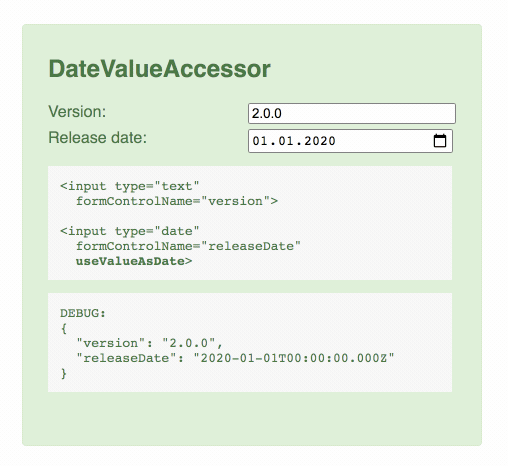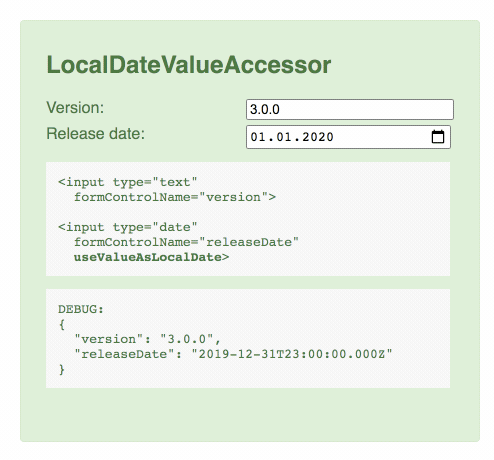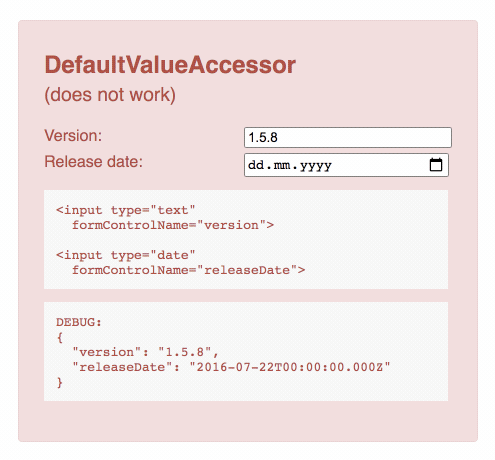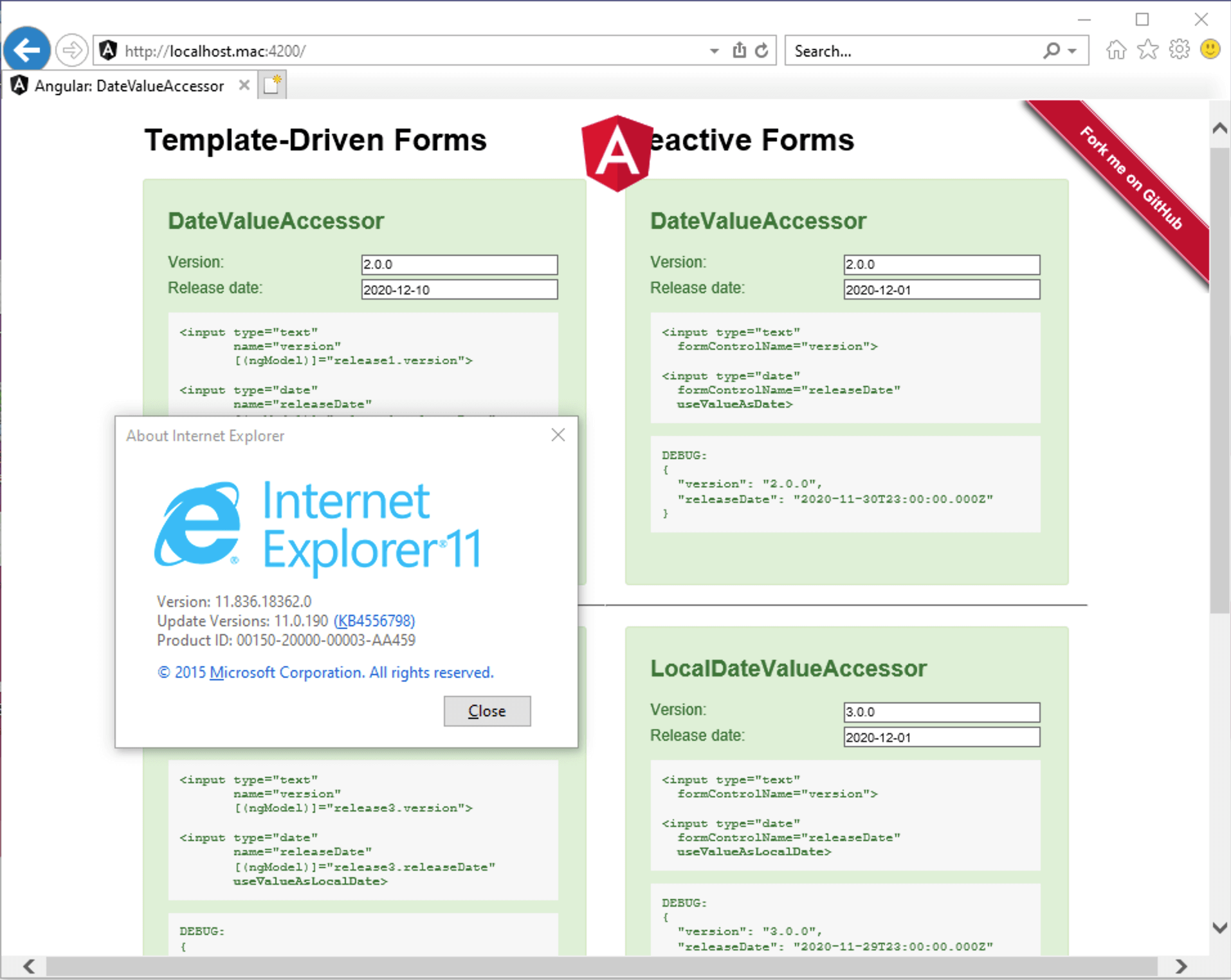Package Exports
- angular-date-value-accessor
This package does not declare an exports field, so the exports above have been automatically detected and optimized by JSPM instead. If any package subpath is missing, it is recommended to post an issue to the original package (angular-date-value-accessor) to support the "exports" field. If that is not possible, create a JSPM override to customize the exports field for this package.
Readme
DateValueAccessor for Angular
A custom value accessor for Angular.
Now you can use <input type="date"> (provides real JavaScript date objects) directly with two-way data bindings (ngModel) as well as with reactive forms (formControlName/formControl).
Demo
Here you can see the DateValueAccessor - the binding works!
Changes to the input field are propagated to the model.

And here you can see the LocalDateValueAccessor.
Please notice how the date is adjusted due to the German time zone (UTC+1) and how the time offset works.

And this shows a not working form field (the default behaviour). Changes in the input field are propagated to the model, but unfortunately the date becomes a string which is not very useful for any further processing.

You can try out the demo at the following page:
http://johanneshoppe.github.io/angular-date-value-accessor/
Usage
You have to explicitly opt-in by adding the attribute useValueAsDate or useValueAsLocalDate to a date input control:
<!-- DateValueAccessor (UTC) --->
<input type="date"
name="myBirthday"
ngModel
useValueAsDate>
OR
<input type="date"
name="myBirthday"
[(ngModel)]="myBirthday"
useValueAsDate>
OR
<input type="date"
formControlName="myBirthday"
useValueAsDate>
<!-- LocalDateValueAccessor (Local Time) --->
<input type="date"
name="myBirthday"
ngModel
useValueAsLocalDate>
OR
<input type="date"
name="myBirthday"
[(ngModel)]="myBirthday"
useValueAsLocalDate>
OR
<input type="date"
formControlName="myBirthday"
useValueAsLocalDate>
Installation
Download the package via NPM:
npm install angular-date-value-accessorUTC Time and Local Time
When working with Dates in Javascript you either operate in UTC or Local Time.
- UTC is has no timezone offset.
- Local Time depends on the host system time zone and offset.
Javascript Dates support both the UTC and the Local Time representation. Depending on the requirements of your application you can choose from these Value Accessors:
DateValueAccessor (UTC)
The DateValueAccessor operates in UTC (Coordinated Universal Time).
The HTML date input will read the UTC representation of the Date Object. When you select a date it will output an UTC date with the time set to 00:00 (UTC).
Import the module via NgModule:
// app.module.ts
import { DateValueAccessorModule } from 'angular-date-value-accessor';
@NgModule({
imports: [
DateValueAccessorModule
]
})
export class AppModule { }Now you can apply the useValueAsDate to your date input controls.
LocalDateValueAccessor (Local Time)
If you prefer to work with Local Dates then you can use the LocalDateValueAccessorModule.
The HTML date input will read the Local Time representation of the Date Object. When you select a date it will output a Local Date with the time set to 00:00 (Local Time).
Import the module via NgModule:
// app.module.ts
import { LocalDateValueAccessorModule } from 'angular-date-value-accessor';
@NgModule({
imports: [
LocalDateValueAccessorModule
]
})
export class AppModule { }Now you can apply the useValueAsLocalDate to your date input controls.
ℹ️ Hint: Most UI component libraries like Angular Material, Kendo Angular, PrimeNG implement their DatePickers operating in Local Time. The Angular Date Pipe uses the Local Time representation of the Date Object by default, too.
IE11 Support
This package works great on modern browsers.
But Internet Explorer 11 does not support <input type="date"> out of the box.
If you want to support this browser, you need an additional polyfill:
https://www.npmjs.com/package/date-input-polyfill

Demo in IE11 using the
date-input-polyfill.LocalDateValueAccessorworks as expected. Please note that all input fields operate in local time. This means thatDateValueAccessordoes not behave as specified.